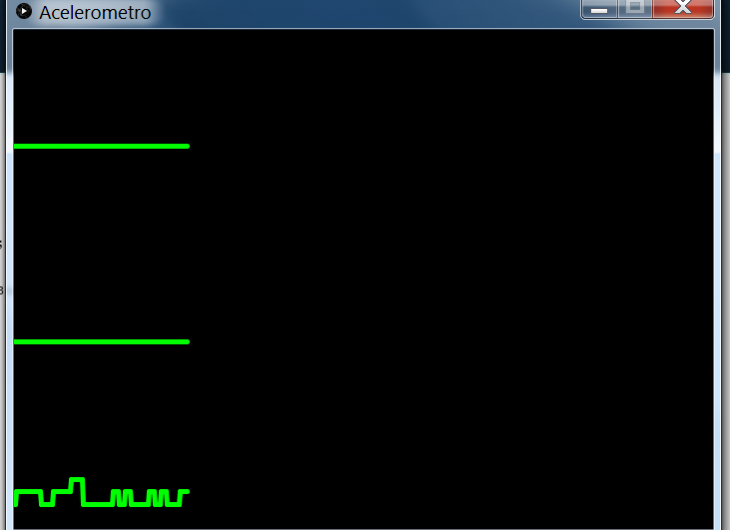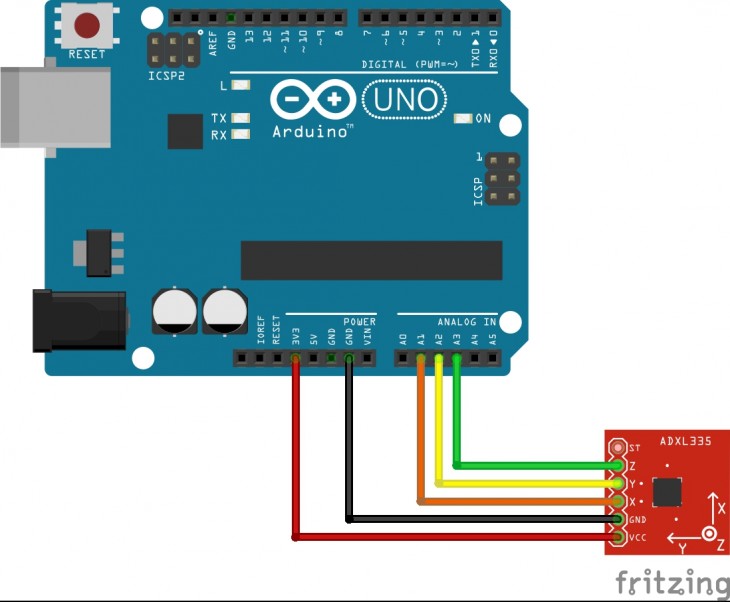// these constants describe the pins. They won’t change:
const int groundpin = 18; // analog input pin 4 — ground
const int powerpin = 19; // analog input pin 5 — voltage
const int xpin = A3; // x-axis of the accelerometer
const int ypin = A2; // y-axis
const int zpin = A1; // z-axis (only on 3-axis models)
void setup() {
// initialize the serial communications:
Serial.begin(9600);
// Provide ground and power by using the analog inputs as normal
// digital pins. This makes it possible to directly connect the
// breakout board to the Arduino. If you use the normal 5V and
// GND pins on the Arduino, you can remove these lines.
pinMode(groundpin, OUTPUT);
pinMode(powerpin, OUTPUT);
digitalWrite(groundpin, LOW);
digitalWrite(powerpin, HIGH);
}
void loop() {
// print the sensor values:
Serial.print(analogRead(xpin));
// print a tab between values:
Serial.print(“\t”);
Serial.print(analogRead(ypin));
// print a tab between values:
Serial.print(“\t”);
Serial.print(analogRead(zpin));
Serial.println();
// delay before next reading:
delay(100);
}
“ SO.5 Produino |Arduino +Processing ” is a project of IaaC, Institute for Advanced Architecture of Catalonia
developed at Master of Advanced Architecture in 2015/ 2016 by:
Students:
- Firdose Basha Ghouse
- Mohit Chordia
Faculty:
· Car Menez
Ramin Shambayati




